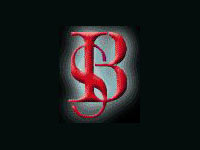International Staff Band
24-Oct-2009Conductor: Stephen Cobb
Regent Hall
Friday 16th October
 For the Brass Arts Festival 2009, in a change to the usual format, the customary afternoon concert was combined with the teatime talk by the composer of the test piece for Saturday’s contest.
For the Brass Arts Festival 2009, in a change to the usual format, the customary afternoon concert was combined with the teatime talk by the composer of the test piece for Saturday’s contest.
The International Staff band, under Dr Stephen Cobb, presented the concert and also provided illustrations for Peter Graham’s talk, attracting quite a large crowd for the event.
Due to the difficulties in assembling the band on a Friday afternoon they needed to call on a couple of deps, with Trevor Caffull being cajoled out of retirement, and including Dudley Bright on Principal Trombone and Philip Cobb sitting third man down on the cornet bench.
American connection
Their programme included several items either arranged or composed by Peter Graham, including the opening march, “The Ambassadors”, written whilst Peter was a member of the New York Staff Band. Featuring the tunes “Stand up, stand up for Jesus” and “Marching through Georgia” (associated in The Salvation Army with the words “Shout aloud salvation and we’ll have another song”), it was taken at a suitably brisk pace.
At the conclusion Peter graham pointed out the inclusion in the euphonium part of a brief extract from “Land of Hope and Glory”, as he asserted his Britishness amidst the razzmatazz.
Conflict between good and evil
Peter Graham then introduced Eric Ball’s “Triumph of Peace”, explaining how very many of Eric’s works, both for The Salvation Army and for contesting, contain elements of conflict between good and evil, manifested here by a “evil” theme and a “peace” theme. Stephen drew some full-throated playing from the band, with a notable solo contribution from Kevin Ashman and neatly placed figures in the bass, and a triumphant conclusion with the return of the “peace” theme in a new key.
Solo that has stood the testy of time
Erik Leidzen originally wrote “Song of the Brother” in 1916 as a cornet solo, basing it on the melody “When you and I were young, Maggie”, but since then it has become a staple of the euphonium repertoire, its top Eb being thought of as very daring in its day!
Derick Kane, who has now been Principal Euphonium with the ISB for 33 years, produced a stunning performance, making the most of the sustained lines, and giving the music plenty of room to breathe. The band accompanied well, with much attention to detail, especially in the minor key variation, and the piece ended with a resounding top D.
Tribute to Bandmaster James Williams and Enfield
The band then continued with Peter Graham’s “Ad Optimum”, which takes its title from the motto for Enfield Citadel Band and was written as a tribute to their long-time bandmaster James Williams.
It incorporates elements of the style of both Erik Leidzen and Eric Ball, using the melodies “When morning gilds the skies” and Peter Graham’s own vocal setting of “There is beauty in the name of Jesus”, as well as the tune “Gerontius” (“Praise to the Holiest in the Height”). It culminated in a blaze of sound, enhanced by a resonant tam-tam roll at the end.
Rousing first half finale
“St Theresa” (Charles Skinner, arr Graham) brought some seamless playing and tasteful decoration of the melody, before the final item in the first half, “Blazon”, based round the tune “Theodora” and also including another of Peter’s vocal pieces, “Paean”.
The busy writing was a reminder of the influence Peter Graham has had on writers such as Paul Lovatt-Cooper, and other passages recalled works such as “On Alderley Edge” (the use of triplets and the trombone glissandi) and “Shine as the light”. Once again, the band produced a breadth of sound, particularly when the two themes were combined towards the end of the piece.
Illustrated talk on The Torchbearer
The talk on the test piece was preceded by a performance of the march “Torchbearers”, taken at a steady pace, with the horns and baritones heard to good effect in the trio. It was then interesting to hear Peter Graham describe some of the elements of Eric Ball’s musical language, illustrating them with extracts played by the band, and showing how similar passages appear in various works.
The band also gave a taster of the test piece itself, playing a number of extracts, but reserving the full performance for the band drawn first in the contest.
World Premiere of Seize the Day
The concert ended with the premiere of “Seize the day”, a new piece by Peter written for inclusion on a forthcoming recording of his music to be shared between the ISB and Black Dyke. Opening with the spiritual “The Gospel Train” the band produced some effective train effects, with frenetic and driving rhythms, with more than a passing similarity at one stage to “633 Squadron”!
There was some fearsome writing for xylophone which cut through the texture, before things calmed down with the euphonium melody “Swing Low”. A brief section featuring the chorus “Amen” led into some McArthur Park style rhythmic figures before the return of “Swing Low” drew the piece to a close.
As an encore the band presented the march “Star Lake”, taken at a blistering pace but with carefully observed dynamics, and very restrained playing in the Trio section.
The audience left the band in no doubt that they had appreciated their efforts, and the event seems to have been a great success all round.
Peter Bale









